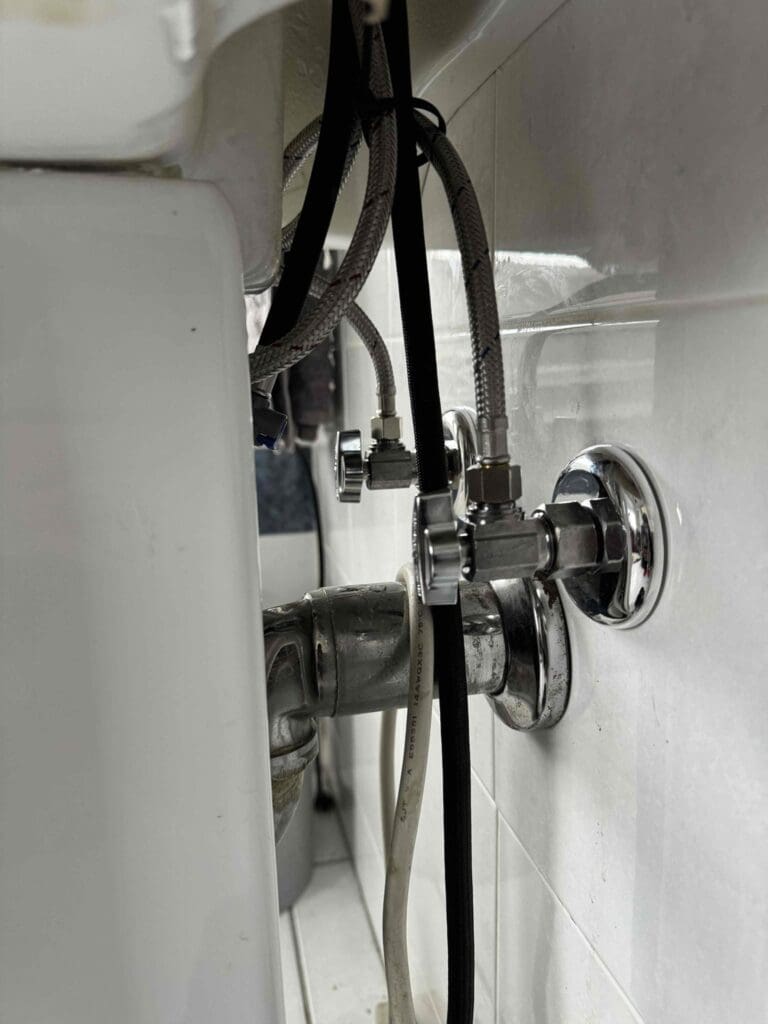Water shutoff valves are unsung heroes of our plumbing systems, quietly controlling the flow of water to our sinks, toilets, and appliances. However, like any mechanical component, these valves can wear out over time, leading to leaks and potentially costly water damage. At Sharp Plumbing and Heating, we believe that knowledge is power when it comes to protecting your home from plumbing emergencies. So, let’s dive into why water shutoff valves go bad and how to spot the warning signs before disaster strikes.
- Age and Wear: Like most plumbing fixtures, water shutoff valves have a lifespan. Over time, the seals and components inside the valve can deteriorate due to constant exposure to water and minerals. As these components degrade, the valve may become less effective at fully shutting off the water flow, leading to leaks and drips.
- Mineral Buildup: In areas with hard water, mineral deposits can accumulate inside water shutoff valves, causing them to become stiff or difficult to operate. This buildup can also compromise the integrity of the valve’s seals, leading to leaks or even complete failure.
- Corrosion: Exposure to moisture and oxygen can cause metal components of water shutoff valves to corrode over time. Corrosion weakens the valve’s structure, making it more prone to leaks and malfunctions.
Spotting the Signs of a Failing Water Shutoff Valve:
- Visible Leaks: The most obvious sign of a faulty water shutoff valve is a visible leak or drip. Inspect the area under your sinks and around your toilet for any signs of water accumulation or dampness.
- Difficulty Turning: If you notice that the water shutoff valve is becoming increasingly difficult to turn or feels stiff, it may be a sign that the valve’s components are starting to wear out or corrode.
- Sudden Increase in Water Bills: A sudden spike in your water bill could indicate a hidden leak caused by a faulty water shutoff valve. Keep an eye on your water usage and bills, and investigate any unexplained increases promptly.
- Rust or Corrosion: Visible rust or corrosion on the exterior of the water shutoff valve is a clear indication that the valve may be compromised and in need of replacement.
What to Do If You Suspect a Faulty Water Shutoff Valve:
If you spot any of the warning signs mentioned above, it’s essential to address the issue promptly to prevent further damage. Contact the plumbing experts at Sharp Plumbing and Heating to inspect and replace any faulty water shutoff valves in your home. Our experienced technicians can diagnose the problem and provide fast, reliable solutions to keep your plumbing system running smoothly.
Remember, proactive maintenance is key to preventing plumbing emergencies. By staying vigilant and addressing issues promptly, you can avoid costly repairs and keep your home safe and dry for years to come.


